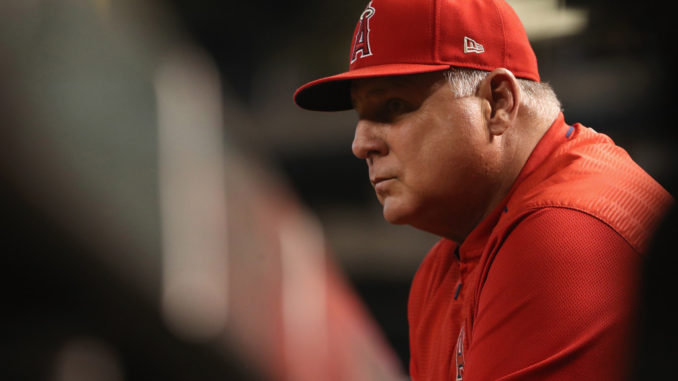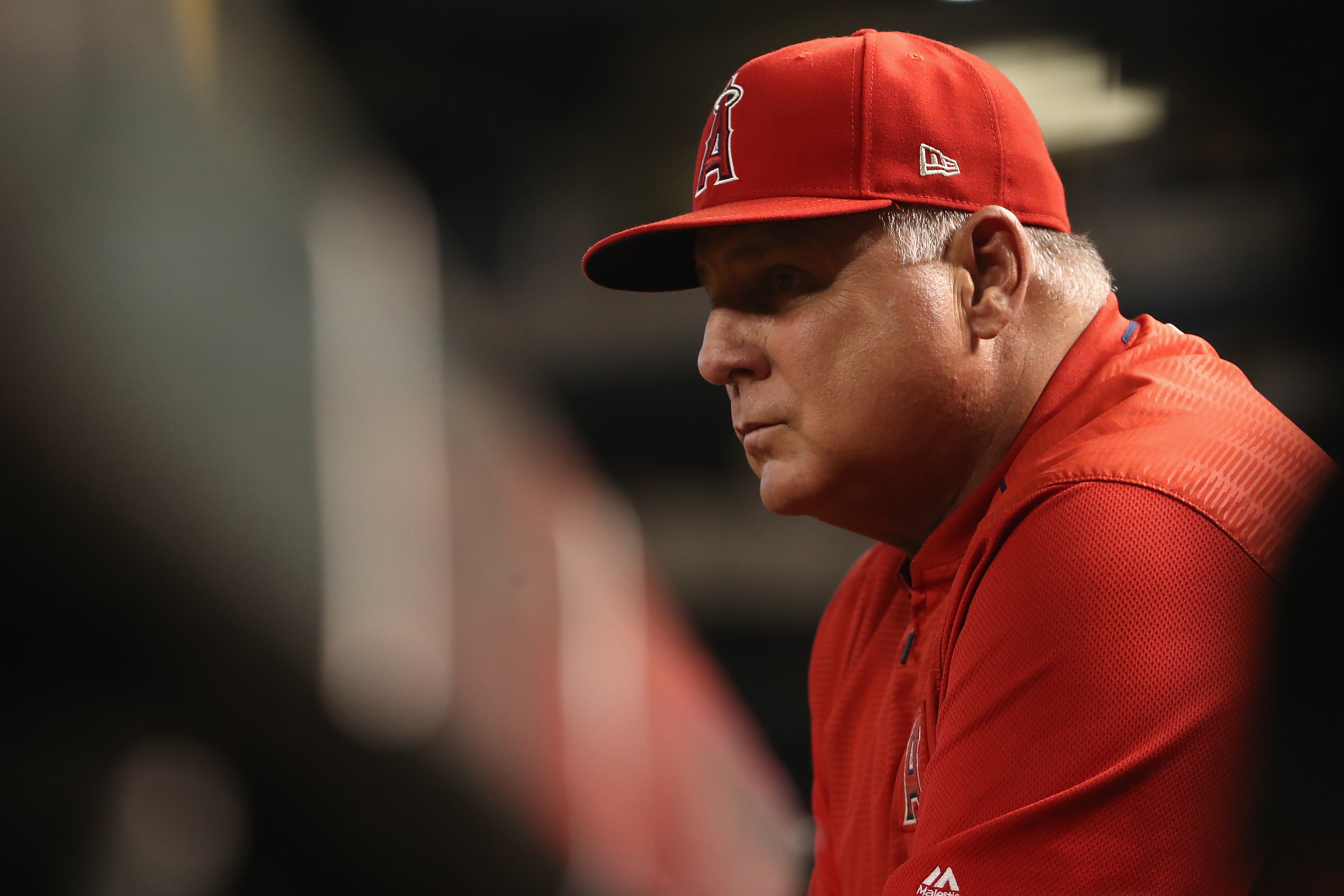
A Mike Scioscia bobblehead is the giveaway at Angel Stadium Saturday night. If that doesn’t send a message, I don’t know what does.
(If the dolls were to be truly realistic, they would depict Scioscia with palms up and a look of bewilderment on his face, as if to say, “What in the world happened to my pitching staff?”)
Sunday’s game against the A’s, in the eyes of most of the baseball world, is expected to be Scioscia’s last game as Angels manager. After a 19-year tenure that includes a World Series championship, seven playoff appearances, two Manager of the Year awards and a club record 1,649 victories through Friday, it is anticipated that Scioscia, whose 10-year contract is up with the season finale, will be asked to step aside. That will come in the wake of four straight non-playoff seasons, and three straight in which the Angels have finished 20-plus games back of the division leader.
Since Ken Rosenthal of The Athletic first broached the possibility in early August, Scioscia has insisted that no decision had been made but that he would sit down with general manager Billy Eppler and owner Arte Moreno at some point to discuss his future.
But he seems to understand the drill. And while he has maintained his daily focus on the task at hand and sidestepped questions asking him to speculate about his future, he did say this to Angels radio broadcaster Terry Smith earlier in the week about whether he wanted to continue managing and specifically managing the Angels:
“I’d like to. We’ll continue to evaluate things this week and I’ll speak with Arte and speak with Billy and kind of come to a decision, but I think that if you love something, you want to continue doing it, and if you can, great, and if you can’t, so be it. But I love the dugout.”
The gist of Scioscia’s statement, if I interpret it correctly: He wants to stay, understands if the Angels want to make a change, but if they do he wants to manage again somewhere.
The problem with that train of thought? The market for a 60-year-old manager with a lot of experience, a big salary and outsized influence in an organization is drying up.
In fact, such managers are dinosaurs. Scioscia, his former lieutenant Joe Maddon with the Cubs and Bruce Bochy with the Giants all made $6 million this year, with Cleveland’s Terry Francona and Baltimore’s Buck Showalter next at $4 million.
(Bochy, even with three World Series championships on his resume, is in a tenuous position in San Francisco after two straight non-contending seasons. He has another year on his Giants contract.)
Meanwhile, according to a survey by USA Today earlier this season, 10 of the big leagues’ 30 managers are paid under $1 million. Three others, including Dave Roberts of the Dodgers and Andy Green of the Padres, are right at $1 million, and the Dodgers still have not picked up Roberts’ option for 2019. The guy who beat Roberts in the World Series last year, Houston’s A.J. Hinch, makes $1.2 million but received a four-year extension from the Astros last month, which probably will come with a decent but not outlandish raise.
Take away the top five, and the average salary for a major league manager in 2018 is a shade more than $1.36 million.
The bottom line: The manager may still be the day-to-day face of the team, and he may be the one responsible for making sure the clubhouse runs smoothly — and enforcing the rules with guys who, in many cases, make a lot more money than he does. But general managers/presidents of baseball operations now have the power and influence — and, presumably, salaries to match — while avoiding most (but not all) of the second-guessing.
This is not to say that Scioscia wouldn’t be willing to step into such a situation. I’m guessing he would, in a minute. I’m just not sure he would get an offer.
Ask his old Dodger teammate, Dusty Baker, how that works.
The conundrum here is that large numbers of Angel fans have short memories. Scioscia draws a lot of heat from the faithful these days, for the usual reasons: In-game strategy, lineups and matchups, when to take starters out, etc. When you don’t win, those decisions and their cumulative effects stand out more.
So it is easy to forget that, when Scioscia arrived in 2000 out of the Dodgers organization, he spurred a change in organizational culture, and in expectations, that exists to this day. That 2002 World Series championship and those five divisional titles in the 2000s didn’t happen by accident.
Thus, when the Angels finish their season Sunday, regardless of what you think about Scioscia’s managerial style or strategic decisions or recent performance, he deserves a long, rousing ovation.
Consider it a thank you.






